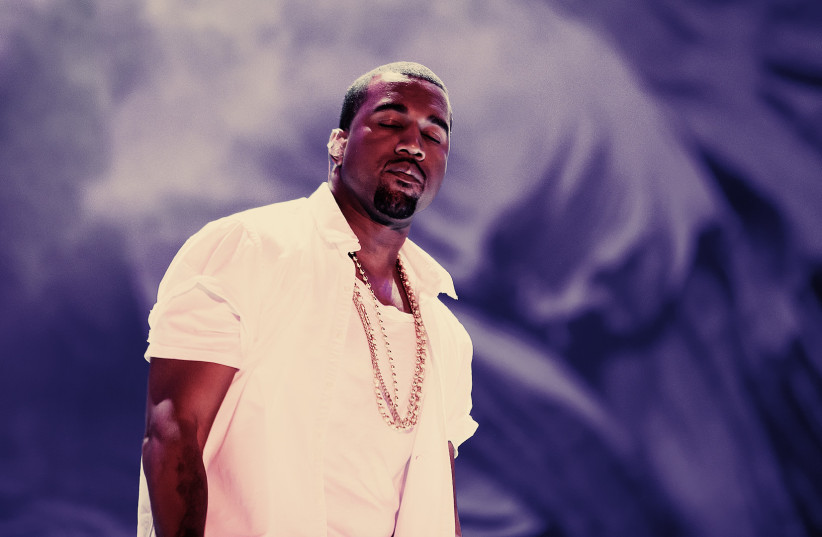It’s official: Elon Musk has taken over Twitter. While everyone seems to have an opinion on whether this will be positive or negative for the social media platform and the world, Musk’s agenda for Twitter is already being rolled out. Musk reportedly plans to reverse suspensions of many accounts, possibly including former United States president Donald Trump and rapper Kanye West.
West was recently suspended from the platform after repeated antisemitic outbursts attacking the Jewish community on social media and in interviews. While Musk has long been an advocate against censorship on Twitter, in the context of antisemitism, the issue is far more complex than a matter of free speech alone.
Allow me to preface this by saying that I am a staunch defender of free speech and despite being a researcher and expert in online antisemitism, I do not believe the majority of content should be removed by social media platforms, including hateful speech, unless it has a demonstrable relationship to acts of violence that have a high likelihood of occurring.
Additionally, it’s critical to remember that as a private company Twitter is not legally required to protect anyone’s free speech because it is not a government entity and sets its own terms. That being said, these platforms operate within the public sphere and profoundly influence public opinion. As such, a balance needs to be maintained. Whenever possible, the intent of social media content moderation should be education, not censorship.
Unfortunately, these platforms (especially Twitter) haven’t quite figured out what that balance is. For example, Twitter banned Trump completely for years, while leaving the account of Ayatollah Khamenei intact. All that time, as Twitter was claiming the Trump ban was in the public interest, the Ayatollah was promoting Holocaust denial and antisemitism, and threatening violence against Israelis.

It’s a fact that public figures with significant influence should not be able to use the free platforms of social media companies to spread violent ideologies and threats of violence against Jews or any other group of people. But making big tech companies the arbiters of what’s hateful and likely to result in violence and what’s not is also highly problematic – look no further than the Chinese government’s control of TikTok.
Antisemitism on social media presents a unique challenge. Indeed, social media has been the primary medium through which antisemitism has spread in recent years. In 2016-2018, Israel saw a wave of Palestinian terror attacks fueled by online antisemitism and glorification of terror on Arabic social media.
Terrorism and social media
THIS WAVE of terrorism demonstrated the direct relationship linking social media incitement to violence and deadly attacks on civilians. The primary motivator for these acts of terrorism was disinformation promoted by Palestinian terror groups and echoed by activists, “Al Aqsa is in danger.” Incidentally, this is the same myth that motivated the Guardians of the Wall operation, in 2021.
Since that time, Facebook and Instagram have improved in dealing with direct incitement to violence on their platforms (except apparently from Ayatollah Khamenei), but the impact of antisemitism and related disinformation, such as conspiracy theories that the Jews or Israel are behind COVID-19, is deadly serious and has lead to in-person attacks on Jews around the world. Antisemitism is unlike other forms of hatred in that it’s an ancient form of racism that often manifests itself today under the guise of anti-Zionism or so-called criticism of Israel. Due to its complex nature, many don’t truly understand antisemitism and the risks of letting it go unaddressed online or otherwise.
The best way for social media platforms to deal with online antisemitism is by adopting the International Holocaust Remembrance Alliance (IHRA) definition. This provides a basis for understanding antisemitic speech, helps limit the reach of antisemitic content, flags it with a warning about incorrect or antisemitic information and helps prevent it from going viral.
In the case of public figures, a different approach should be considered of removing specific content rather than entire users and automatically monitoring subsequent content from that user. Any content that continues to promote, for example, antisemitism could be automatically removed before going to their millions of followers.
The reality is that antisemitism online cannot be dealt with through a black-and-white absolutist free-speech lens. The game on social media is different, faster and more dangerous than previous methods of communication and the strategy for dealing with it needs to adapt. Unfortunately, because of Twitter’s algorithm, extremist content is inherently promoted – but there are steps that can be taken by Twitter to respect free speech while dealing with antisemitism appropriately.
Twitter’s new owner would do well to consider the plethora of evidence demonstrating the relationship between antisemitic content from public leaders online and the incidents of violence against Jews when he shapes policies about free speech at Twitter.
By monitoring content through the lens of the IHRA definition and limiting exposure through warnings and an algorithm that prevents the trending of antisemitic content, Twitter can greatly reduce the amount of damage done to Jews on its platform.
The writer is a human rights activist.
